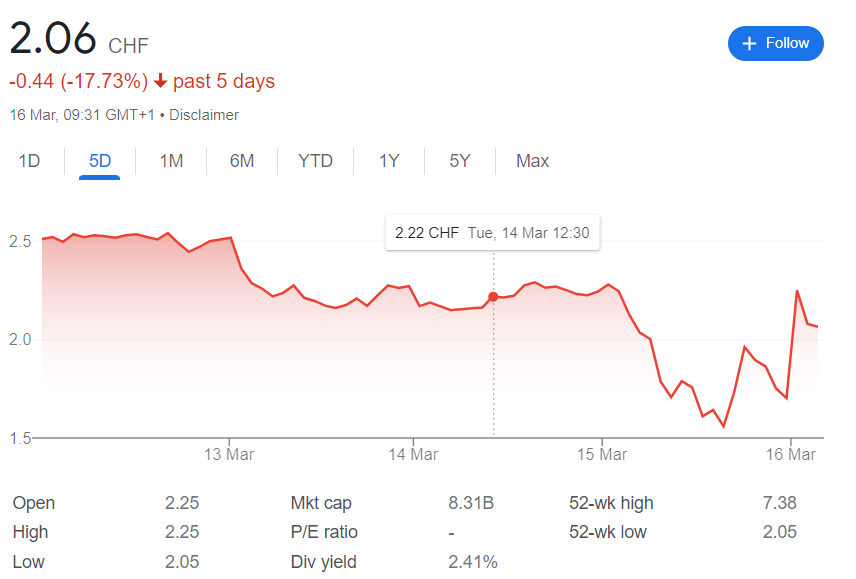Switzerland’s second-largest bank, Credit Suisse has seen its share prices hit consecutive all-time lows after being denied financial assistance from its largest shareholder, the Saudi National Bank.
This situation led to the bank deciding to borrow up to $54 billion (€50.8 billion) from the Swiss National Bank (SNB) under a covered loan facility and short-term liquidity, amid fears that it could default on its debt.
While unrelated to the collapse of Silicone Valley Bank (SVB), challenges in Credit Suisse dented the confidence of an anxious global banking system, considering that, unlike SVB, Credit Suisse is bank with deep ties in global financial markets, and is considered a systematically important financial institution.
The bank’s issues are nothing new, having been at the centre of numerous scandals and reports of mismanagement. In 2022 the bank reported its biggest annual loss since 2008.
As it tumbled it pulled down other European banks with it, with Société Generale SA dropping 12 per cent, BNP Paribas dropping 10 per cent and both Deutsche Bank and Barclays Bank dropping a further eight per cent.
In a statement, Credit Suisse said it also announced a separate cash tender offer in relation to four euro-denominated senior debt securities for an aggregate consideration of up to €500 million.
The bank’s share price appears to have mildly recovered, however, whether the measures taken prevent further fallout in the global banking system is yet to be seen.

Featured Image via Credit Suisse Facebook Page
Inflation risk re-surging as tensions heat up between Israel and Iran
Oil and gold prices jumped after the latest strike by Israel
WATCH: Rare torrential rain in Dubai wreaks havoc and causes major disruption
Flooding hits shopping malls, destroying stock
Spain to end ‘golden visa’ scheme over property market impacts
While countries are slowly banning the practice, Malta remains firm in keeping the scheme alive






